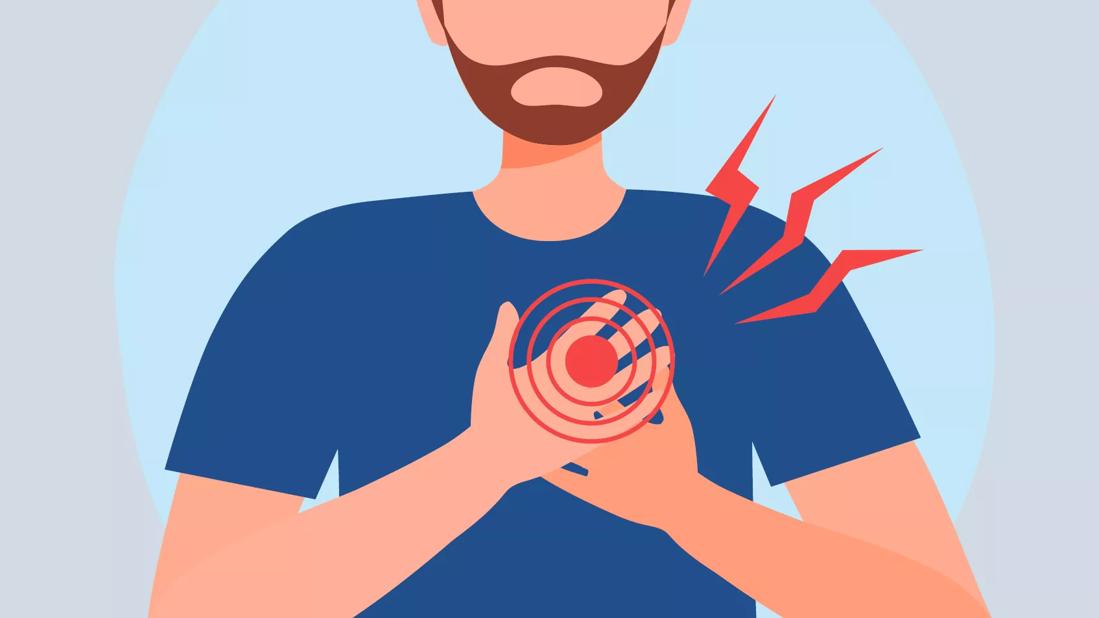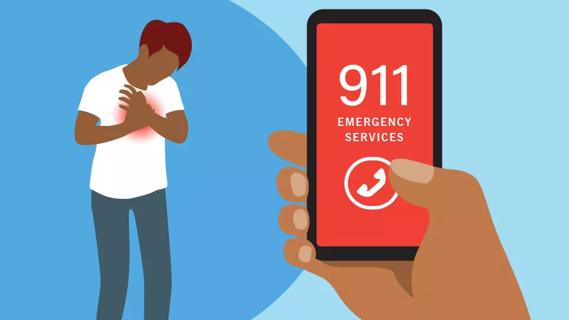Advertisement
Heart disease prevention is key

Atherosclerosis is a condition where the arteries in your heart become partially or fully blocked by a fatty material known as plaque. This can lead to coronary artery disease, which is also known as coronary heart disease or heart disease.
Advertisement
Cleveland Clinic is a non-profit academic medical center. Advertising on our site helps support our mission. We do not endorse non-Cleveland Clinic products or services. Policy
Unfortunately, there isn’t a cure for coronary artery disease, and you can’t reverse this condition once you’re diagnosed. But you can make lifestyle changes to reduce your risk of developing further health problems, such as a heart attack. Options include adjusting your diet, exercising more and limiting your alcohol intake.
“Although we can’t cure heart disease, we can make it better,” says cardiologist Steven Nissen, MD, Chief Academic Officer, Sydell and Arnold Miller Family Heart, Vascular & Thoracic Institute. “Most forms of heart disease are very treatable today.”
Researchers are always striving to develop new and better coronary artery disease treatments. Newer drugs can reduce your LDL cholesterol (the kind that leads to coronary artery disease) to lower levels than before.
A cure for coronary artery disease is a long way off, though. For example, doctors still don’t have the ability to erase plaque in arteries completely.
“We will likely become better at preventing coronary artery disease before we find a cure for it,” says Dr. Nissen. “This is very important because the best coronary artery disease is the coronary artery disease you never develop.”
Prevention is key because heart muscle can’t regrow after it’s damaged by incidents such as a heart attack. “There is some evidence that we may be able to delay or even prevent a heart attack by aggressively treating high blood pressure and high cholesterol,” says Dr. Nissen. “However, once a heart attack occurs and heart muscle dies, we can’t regenerate those cells.”
Another form of heart disease, valve disease, can also have irreparable consequences, says Dr. Nissen. “Once a heart valve becomes stiff and calcified, there is no way to restore the valve’s flexibility. It must be repaired or replaced.”
Heart disease risk factors include factors you can’t control, like age, gender and genetics. But you can make lifestyle changes to prevent coronary artery disease from developing in the first place.
In fact, some of the most exciting advances have been made in disease prevention.
“We have learned a lot about the risk factors for coronary artery disease and can recommend lifestyle changes and medications to lower your risk,” notes Dr. Nissen. “We have excellent medications that can prevent coronary artery disease if you’re living with diabetes, high blood pressure and high cholesterol.”
Here are risk factors contributing to the development of coronary artery disease that you can control.
Adopting a heart-healthy diet is an easy way to get healthier. With a heart-healthy diet, you avoid foods high in trans fats or saturated fats, which raise your cholesterol. In other words, you stay away from eating excess amounts of red meat, fried food, full-fat dairy products and foods cooked in coconut or palm oil.
Instead, your meals focus on foods that protect your heart, such as fruits and vegetables, whole grains, legumes, lean proteins and fish.
Smoking is associated with many health problems, including high blood pressure and high cholesterol. Your healthcare provider can give tips about the best ways to quit.
Advertisement
A sedentary lifestyle increases your risk of developing coronary artery disease. But exercise helps. Experts recommend walking 30 minutes five times per week. Being physically active also helps you shed excess weight, another coronary artery disease risk factor.
Excessive drinking can lead to high blood pressure, or even damage the heart itself. Try reducing, or limiting, alcohol. Current recommendations say women should have no more than one drink a day, while men should have no more than two drinks daily.
Stress has a negative impact on heart health. For example, anger and fear can lead to elevated blood pressure, a known risk factor for coronary artery disease.
Learning techniques to manage stress can help. Doctors recommend learning relaxation techniques such as mindfulness or meditation, or incorporating exercise into your daily routine.
Diabetes, high blood pressure and high cholesterol cause serious health issues if left untreated. So can coronary artery disease. If you have any of these conditions, be sure to follow your healthcare provider’s treatment plans and recommendations.
In general, regular checkups are a good way to make sure you’re on the right health track. Your doctor may opt to prescribe medicine that helps lower your cholesterol or blood pressure. Or they may see early warning signs of coronary artery disease, and then recommend diet or exercise changes.
Once you’ve been diagnosed with heart disease, you can’t be cured. But you can treat the things that contributed to the development of coronary artery disease. In turn, this can reduce how the condition impacts your body.
“There is some evidence that normalizing high blood pressure and lowering cholesterol to very low levels will partially reverse plaques in the coronary arteries,” says Dr. Nissen. “They won’t go away completely, but they shrink enough to make a difference.”
Without treatment, heart disease can shorten your life. However, staying on top of your health — and putting together a treatment plan with your doctor — can allow you to enjoy life for many years to come.
“We can open vessels to relieve symptoms from coronary artery disease,” notes Dr. Nissen. “We can repair or replace diseased valves. When damage to the heart muscle causes your heart to fail, we can offer a mechanical assist device to help your heart pump more strongly or do a heart transplant.
“These measures don’t cure the disease, but they do allow you to recover and live a long, functional life.”
Learn more about our editorial process.
Advertisement

Obesity, age and preexisting heart conditions can all raise your risk of cardiovascular disease during pregnancy

If your provider has ruled out a serious cause, you can treat chest pain at home with antacids, inhalers or anti-inflammatory medications

Walking is a great goal, but how many steps are best for you depends on factors like your fitness level and age

Research shows a strong association between rheumatoid arthritis and heart issues

Eating more natural, whole foods can lower your risk of heart and cardiovascular diseases

There’s no way to stop it once a heart attack is happening, but the most important thing you can do is to call for help

You can counter the risk of prediabetes-related heart attack or stroke by eating more fruits, vegetables and whole grains, as well as exercising regularly

Age, sex and genetics are just a few factors that can affect your risk of developing coronary heart disease

Focus on your body’s metabolic set point by eating healthy foods, making exercise a part of your routine and reducing stress

PFAS chemicals may make life easier — but they aren’t always so easy on the human body

While there’s little risk in trying this hair care treatment, there isn’t much science to back up the claims